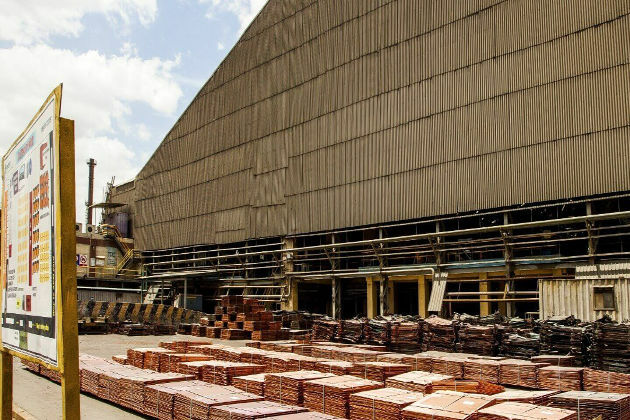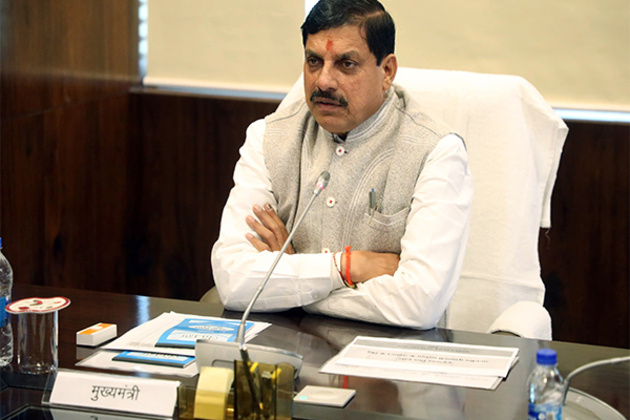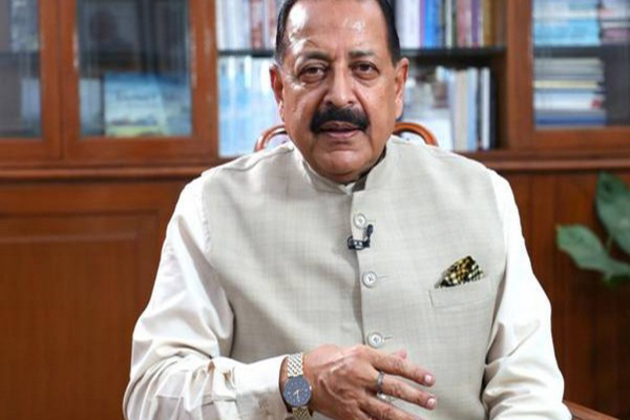Food shortages: five ways to fix 'unfair' supply chains
The Conversation
25 Jan 2023, 12:10 GMT+10

UK food prices soared by more than 16% in 2022 as record inflation pushed up the prices of everything from bread to beans.
Tesco chairman John Allan recently suggested that suppliers could be using this situation to boost prices. Speaking to the BBC's Laura Kuenssberg about whether food companies were taking advantage of consumers with recent price rises, Allan said: "I think that's entirely possible".
While he admitted he hadn't "seen their cost structures", he said the supermarket chain was fighting "very hard to challenge cost increases". Tesco has previously refused to stock certain products while haggling over prices with suppliers.
Allan's comments have been criticised by food firms and farmers alike. They argue that they are suffering from rising costs and often don't see the benefits of food price hikes.
For example, farmers and suppliers - many of whom are small- and medium-sized firms (SMEs) - have recently argued they are not getting a fair price for their eggs from supermarkets and other big-box stores. The price of a dozen eggs at the till rose by 45p over the course of 2022, but many farmers only saw 5p-10p of that rise, according to figures released in November by the British Free Range Egg Producers Association.
Combined with rapidly rising production costs and the impact of the worst avian flu pandemic in history, this is putting enormous strain on these producers and suppliers. And the current combination of rising interest rates and high input and energy costs is generating concern among farmers in general.
In this rising price environment, these businesses are at risk of further pressure on their cash flows or even future production failure. This could eventually impact the UK's food supply chain resilience and security, and also increase waste.
Indeed, producers and suppliers can face a significant power imbalance in food supply chains, which can feed through to higher prices for consumers. While such businesses often bear all the risks of producing and supplying items like eggs, many are unable to bargain for more favourable trading terms with powerful retailers.
Our previous research suggests small businesses in other industries also have little or no bargaining power in such situations. These businesses must adhere to the terms imposed by their buyers, or risk losing income.
Supporting supply chain fairness will not only safeguard these companies from collapse, it will also help relieve shortages for consumers and could prevent future food supply crises.
Fairness in supply chains
The concept of "fairness" is frequently overlooked in discussions about supply chain sustainability, perhaps because it is so subjective. When evaluating fairness in any exchange, one party compares their inputs and outputs, and what they believe they deserve.
These decisions usually come down to context, being shaped by the nature of the exchange and any previous interactions with the other party.
While the concept of fairness is rarely included in the sustainability agenda of an organisation, in a supply chain context the fundamentals of fairness can be measured using three key dimensions:
- the economic returns derived from the relationships;
- how decisions are governed, as well as the policies and procedures related to the relationships;
- the extent to which the other party communicates relevant information and resolves conflicts with openness.
Based on these measures, our recent research has produced five strategies that could help promote food supply chain fairness:
1. Revisiting the terms of trade
Given the relative weakness of suppliers, it is essential to re-evaluate their contract terms with supply chain partners and ensure that these terms allocate profits or benefits equally. In supply agreements, it is essential to provide clear and unambiguous terms of trade. These business terms require legal enforcement and repercussions.
2. Alignment across the food supply chain
The supply chain may be misaligned when it comes to the ethical values and practices of the various participants, allowing unfair practices to persist. One way to address this is to foster mutual understanding, standard practice and value among all stakeholders in the supply chain. This can be achieved through risk sharing, relationship building, and dedicated investments that benefit the entire chain.
3. Lobbying and advocacy
Suppliers as a whole need to send messages that will move relevant authorities and government agencies to take concrete steps toward implementing policy changes. Such bodies include the National Farmers' Union, the Food and Drink Federation and the Department for Environment, Food and Rural Affairs, as well as more general groups such as the Federation of Small Businesses and the Confederation of British Industry.
4. Addressing the power imbalance
It is crucial to bring back agricultural marketing boards - government entities that oversee agricultural production and compliance. These organisations could help put producers and distributors of agri-food commodities on an equal footing with retailers when it comes to bargaining. Government action, in the form of policy reviews and adjustments to the existing structures for procurement and supply chains, would also help. The concept of fairness should also be incorporated into the sourcing and supplier relationship practices of large retailers.
5. Education to raise standards
All supply chain members need ethical supply chain management education to raise industry standards. UK professional bodies like the Chartered Institute of Procurement and Supply and the Chartered Institute of Logistics and Transport could help regulators and supply chain members develop the right skills, knowledge and new perspectives.
Implementing these five strategies will require all supply chain members to take these necessary steps.
With rising demand for food and a growing global population, it is more important than ever to build a resilient food supply chain. Our research shows that preventing a food crisis in the UK means placing fairness at the heart of our food supply chains.
Authors: Adegboyega Oyedijo - Lecturer in Operations and Supply Chain Management, University of Leicester | Temidayo Akenroye - Associate Professor of Supply Chain & Analytics, University of Missouri-St. Louis 
 Share
Share
 Tweet
Tweet
 Share
Share
 Flip
Flip
 Email
Email
Watch latest videos
Subscribe and Follow
Get a daily dose of India Gazette news through our daily email, its complimentary and keeps you fully up to date with world and business news as well.
News RELEASES
Publish news of your business, community or sports group, personnel appointments, major event and more by submitting a news release to India Gazette.
More InformationBusiness
SectionFilmmaker joins biotech effort to bring back extinct giant bird
WASHINGTON, D.C.: Filmmaker Peter Jackson's lifelong fascination with the extinct giant New Zealand flightless bird called the moa...
India seeks WTO nod for retaliatory tariffs on US
NEW DELHI, India: India has submitted a revised proposal to the World Trade Organization (WTO) in Geneva to implement retaliatory tariffs...
AI boom propels Nvidia to historic market cap milestone
SAN FRANCISCO, California: Nvidia, the Silicon Valley chipmaker at the heart of the artificial intelligence boom, this week briefly...
AI saves $500 million for Microsoft as layoffs reshape strategy
REDMOND, Washington: Artificial intelligence is transforming Microsoft's bottom line. The company saved over US$500 million last year...
FTC’s rule to ease subscription cancellations struck down by court
WASHINGTON, D.C.: A federal rule designed to make it easier for Americans to cancel subscriptions has been blocked by a U.S. appeals...
Musk’s X loses CEO Linda Yaccarino amid AI backlash, ad woes
BASTROP, Texas: In a surprising turn at Elon Musk's X platform, CEO Linda Yaccarino announced she is stepping down, just months after...
Delhi
SectionIndia seeks WTO nod for retaliatory tariffs on US
NEW DELHI, India: India has submitted a revised proposal to the World Trade Organization (WTO) in Geneva to implement retaliatory tariffs...
Birkenstock steps up legal battle over fakes in India
NEW DELHI, India: Birkenstock is stepping up its efforts to protect its iconic sandals in India, as local legal representatives conducted...
Odisha: Couple who defied marriage norms tied to yoke, made to plough field; Authorities begin probe
Rayagada (Odisha) [India], July 13 (ANI): District authorites in Odisha said that a four-member team has been formed to visit Kanjamajodi...
Madhya Pradesh CM Mohan Yadav to leave for Dubai today for investment outreach
Bhopal (Madhya Pradesh) [India], July 13 (ANI): Madhya Pradesh Chief Minister Mohan Yadav is scheduled to go on an official visit to...
Axiom-4 mission crew to undock from ISS on July 14, arrival on July 15: Jitendra Singh
New Delhi [India], July 13 (ANI): Union Minister of State (Independent Charge) for Science and Technology Jitendra Singh on Sunday,...
"Why is CM silent?": Odisha Congress after self-immolation attempt at Balasore college
Bhubaneswar (Odisha) [India], July 13 (ANI): Odisha Pradesh Congress committee spokesperson, Rajani Kumar Mohanty, has questioned the...












